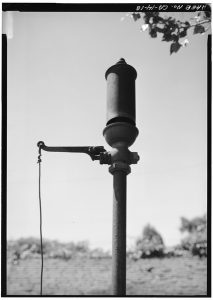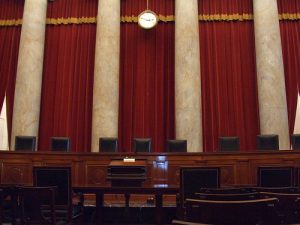 When handled correctly, whistleblower cases can prevent fraud from occurring against the government, help make things right, and even compensate the whistleblower. However, too often these cases fall apart simply because mistakes are made during the process. This is largely because state and federal whistleblower laws are complicated. If you do not understand the laws, it is easy to not follow them correctly and this can lead to mistakes in your whistleblower claim. Below are the most common mistakes made in these cases, so you can avoid making the same ones in yours.
When handled correctly, whistleblower cases can prevent fraud from occurring against the government, help make things right, and even compensate the whistleblower. However, too often these cases fall apart simply because mistakes are made during the process. This is largely because state and federal whistleblower laws are complicated. If you do not understand the laws, it is easy to not follow them correctly and this can lead to mistakes in your whistleblower claim. Below are the most common mistakes made in these cases, so you can avoid making the same ones in yours.
Not Understanding if You Have Protection
The federal False Claims Act and California’s False Claims Act both provide protections for whistleblowers. However, to enjoy that protection, the action that you are reporting on must fall into certain categories. For example, upcoding, kickbacks, billing for services not rendered, and billing for unnecessary medical procedures are all considered actions that may lead to a whistleblower claim. If the actions are not stipulated within the law, you may not have a valid claim.
 Healthcare Fraud Lawyer Blog
Healthcare Fraud Lawyer Blog


 Qui tam lawsuits are brought by individuals, known as whistleblowers, against a company that defrauded the United States government. Whistleblowers do receive compensation for alerting the government of the fraud, but this is not the motivation behind most qui tam lawsuits. Whistleblowers feel a moral obligation to report the company and set things right. There are a number of ways they do this, and many different types of qui tam lawsuits. The most common are found below.
Qui tam lawsuits are brought by individuals, known as whistleblowers, against a company that defrauded the United States government. Whistleblowers do receive compensation for alerting the government of the fraud, but this is not the motivation behind most qui tam lawsuits. Whistleblowers feel a moral obligation to report the company and set things right. There are a number of ways they do this, and many different types of qui tam lawsuits. The most common are found below.  Nearly every lawsuit or legal action has a statute of limitations. A statute of limitations is the time limit within which the plaintiff, or person filing the lawsuit, can file a claim. Personal injury lawsuits in California have a statute of limitations of two years. Even criminal cases have a statute of limitations, although these will vary depending on the type of crime committed.
Nearly every lawsuit or legal action has a statute of limitations. A statute of limitations is the time limit within which the plaintiff, or person filing the lawsuit, can file a claim. Personal injury lawsuits in California have a statute of limitations of two years. Even criminal cases have a statute of limitations, although these will vary depending on the type of crime committed.  As a whistleblower who has filed a qui tam case, your goal is to convince the government to prosecute your case. However, this is usually not an easy task. In fact, there are many situations in which the government may choose to dismiss your False Claims Act (“FCA”) claim, and the Department of Justice (“DOJ”) has outlined seven circumstances under which your qui tam claim may be dismissed. If you believe you have a strong qui tam claim, contact the
As a whistleblower who has filed a qui tam case, your goal is to convince the government to prosecute your case. However, this is usually not an easy task. In fact, there are many situations in which the government may choose to dismiss your False Claims Act (“FCA”) claim, and the Department of Justice (“DOJ”) has outlined seven circumstances under which your qui tam claim may be dismissed. If you believe you have a strong qui tam claim, contact the  In general, if you want to file a lawsuit against another person or entity, you have the option of going at it alone (
In general, if you want to file a lawsuit against another person or entity, you have the option of going at it alone ( While most individuals have the opportunity to bring a qui tam whistleblower suit for any violation of the False Claims Act, there are certain exceptions to who may bring a qui tam whistleblower suit and the conditions of the suit. The following are five instances that, if applicable to you, bar you from filing a qui tam whistleblower suit. If you believe any of the following may apply to you, contact an experienced qui tam whistleblower attorney immediately to find out if you fall into one of the below classes and what options are available to you.
While most individuals have the opportunity to bring a qui tam whistleblower suit for any violation of the False Claims Act, there are certain exceptions to who may bring a qui tam whistleblower suit and the conditions of the suit. The following are five instances that, if applicable to you, bar you from filing a qui tam whistleblower suit. If you believe any of the following may apply to you, contact an experienced qui tam whistleblower attorney immediately to find out if you fall into one of the below classes and what options are available to you. On July 24, the U.S. Attorney’s Office for the Central District of California announced that Celgene Corp., a pharmaceutical manufacturer headquartered in New Jersey,
On July 24, the U.S. Attorney’s Office for the Central District of California announced that Celgene Corp., a pharmaceutical manufacturer headquartered in New Jersey,

